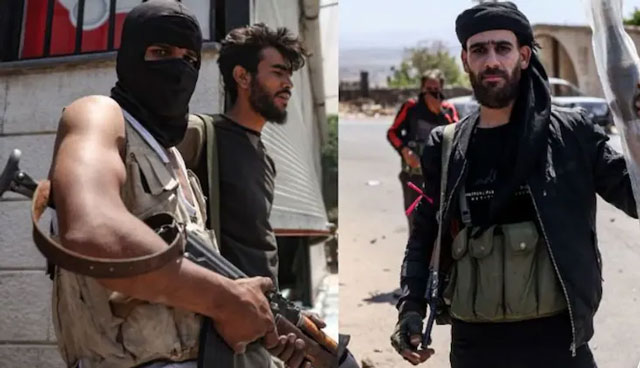Daijiworld Media Network - Sweida
Sweida, Jul 21: Armed Bedouin clans in Syria have withdrawn from the Druze-majority city of Sweida following a week-long violent standoff with Druze militias, as a US-brokered ceasefire begins to take hold and humanitarian aid starts arriving in the conflict-hit southern province.
The clashes, which claimed hundreds of lives, erupted after a series of tit-for-tat kidnappings between Sunni Bedouins and Druze militias and soon escalated into widespread violence across towns and villages, eventually engulfing Sweida city. Tensions flared further after Israel launched airstrikes in the region, targeting government forces reportedly backing the Bedouins.

The Syrian Interim President Ahmad al-Sharaa, perceived as sympathetic to the Bedouins, urged them to exit the city, saying, “They cannot replace the role of the state in handling the country’s affairs and restoring security.” His appeal came as the Bedouin fighters faced mounting criticism over sectarian attacks, including the killing of Druze civilians, vandalism of Druze icons, and cultural insults such as forcibly shaving mustaches of elderly men.
Despite their exit, dozens of armed fighters and tribal reinforcements remain camped on the outskirts of the city, demanding the surrender of Druze spiritual leader Sheikh Hikmat al-Hijri and his followers, whom they blame for inciting unrest. “We will not leave until he turns himself in,” said Khaled al-Mohammad, a tribal leader from Deir al-Zour.
In response, al-Hijri denied promoting sectarian hatred, stating, “We reaffirm that we have no dispute with anyone on religious or ethnic basis... Shame and disgrace be upon those who sow discord.”
As relative calm returned, 32 trucks of humanitarian aid—including food, water, medicines, and fuel—entered Sweida, according to the Syrian Red Crescent. However, tensions persisted as Druze militias reportedly blocked a government convoy, drawing fresh accusations from Syria’s state media.
The UN’s International Organization for Migration revealed that over 128,000 people were displaced during the violence, with 43,000 fleeing on a single day. The international community voiced concern, with US envoy Tom Barrack warning that the clashes have “overshadowed hopes” for Syria’s post-war recovery and lifting of sanctions. “Peace and dialogue must prevail—and prevail now,” he urged.
The violence has deepened fears among Syria’s 1 million-strong Druze population, half of whom reside in the country. While many Druze had welcomed the fall of the Assad regime, the recent bloodshed has left the community skeptical of Al-Sharaa’s Islamist-led administration and disillusioned about the prospects of peaceful coexistence.
With the fragile ceasefire in place and aid flowing in, Syria’s deeply divided south stands at a crossroads—between the promise of peace and the spectre of renewed sectarian warfare.